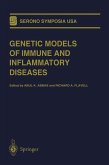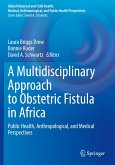This book provides a practical, multidisciplinary approach to support a broad range of health professionals, social workers, public health workers and others tasked with providing health and care to young adults.
The continuum of life begins with the health and wellness of parents prior to conception, followed by embryonic and fetal development, and continues throughout life. Each person's life stages prepare them for the next and determine their health outcome and wellbeing over time.
The text highlights the importance of promoting health throughout the lifespan, the influence of intergenerational health, and the concept of the Developmental Origins of Health and Disease in epigenetic processes and embryology. Authors underscore the importance of advancing health equity and lift up some of the ethical considerations in this work.
The authors explore specific interventions in four major categories: Lifestyle, Infections, Nutrition, and Contraception / Pregnancy Planning (LINC). Preconception care is defined by the World Health Organization as the provision of biomedical, behavioural and social health interventions to women and couples before conception. Preconception care includes evidence-based interventions to improve health status, to reduce behaviours, individual and environmental factors that contribute to poor health outcomes.
This book offers readers evidence-based guidance regarding fertility awareness and sperm health, genetic counselling and lifestyle assessments, as well as mental wellbeing, alcohol, tobacco and pharmacotherapy, and specialist care for those with chronic conditions, including a review of medications. It also covers relevant infections, including HIV and the Zika virus, as well as different types of environmental and occupational exposure. The book employs a framework focusing on health promotion, the social determinants of health, and the science behind preconception care. Strategies for improving preconception and interconception health, including examples from around the globe, are described in detail.
The continuum of life begins with the health and wellness of parents prior to conception, followed by embryonic and fetal development, and continues throughout life. Each person's life stages prepare them for the next and determine their health outcome and wellbeing over time.
The text highlights the importance of promoting health throughout the lifespan, the influence of intergenerational health, and the concept of the Developmental Origins of Health and Disease in epigenetic processes and embryology. Authors underscore the importance of advancing health equity and lift up some of the ethical considerations in this work.
The authors explore specific interventions in four major categories: Lifestyle, Infections, Nutrition, and Contraception / Pregnancy Planning (LINC). Preconception care is defined by the World Health Organization as the provision of biomedical, behavioural and social health interventions to women and couples before conception. Preconception care includes evidence-based interventions to improve health status, to reduce behaviours, individual and environmental factors that contribute to poor health outcomes.
This book offers readers evidence-based guidance regarding fertility awareness and sperm health, genetic counselling and lifestyle assessments, as well as mental wellbeing, alcohol, tobacco and pharmacotherapy, and specialist care for those with chronic conditions, including a review of medications. It also covers relevant infections, including HIV and the Zika virus, as well as different types of environmental and occupational exposure. The book employs a framework focusing on health promotion, the social determinants of health, and the science behind preconception care. Strategies for improving preconception and interconception health, including examples from around the globe, are described in detail.








